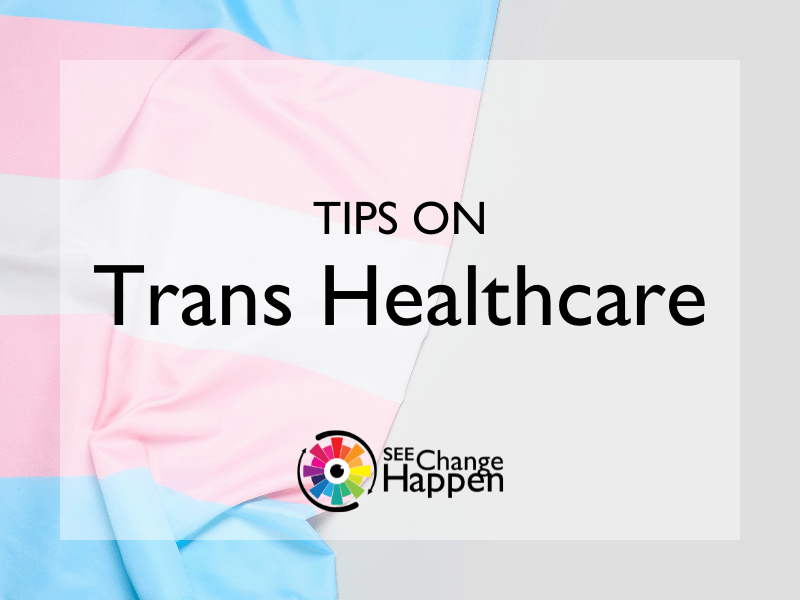
Tips on Trans Healthcare | See Change Happen
Trans healthcare is, in most cases, a complex and daunting process. we need preventive care, treatment for illness and injury, and mental health services. How can you navigate healthcare when the world seems against you?
Finding the right provider or getting the care you need can be a challenge. Are you a transwoman in need of a prostate exam, or a transman in need of a cervical smear? Perhaps you are a Non-binary or intersex person having to deal with a wide variety of bodily issues…
When your gender differs from what you were assigned at birth, ANYTHING reminding you that you are not in a cis body can cause dysphoria and distress on top of any health anxiety you are already experiencing.
- First, find a healthcare provider who is transgender-friendly and knowledgeable about trans care. It is an unfortunate reality that the majority of GPs are not up to date with advances in trans healthcare. There are online directories of these providers, like the LIST OF TRANS FRIENDLY GPS Directory from actionfortranshealth.org.uk.
- Secondly, support is key. If there are no trans-friendly GPs in your area, go ahead and ask around in any queer networks you are a part of. Chances are someone you know knows of a good provider near you. If you are not part of any networks, make it a priority to join as many as you can. Peer support from others on the same path as you can help stabilise you whilst navigating the healthcare system.
- Thirdly, learn resilience. There are three responses to receiving a knockback. We can cry, we can shut down to ignore the pain it causes, or we can OWN THE PROBLEM. We can take charge of our own bodies and our own healthcare. It’s about moving past the frustration a ‘no’ brings us, in order to track down the person who will finally say ‘yes’. Know your rights!
- Finally, remember that we live in an imperfect world. Our reality is that we are navigating a cis heteronormative world that is only just realising that we deserve, and have always deserved, a place within it. Existing healthcare has its limitations, doctors may not be as knowledgeable as you think they should be, but you have the power to do your own research. Google your medications, search ‘trans journey’ on YouTube, and learn about the kind of transition you want. Make a plan. Play the game.
These tips are a good starting point, but they should not be considered the only way to approach your health. Every trans person’s experience is different and what works for one person might not work for another.
The most important thing is that you find a healthcare provider who respects your gender identity and will work with you to create a care plan that meets your needs. Persevere through the stress and do what’s right for your body—you deserve it.
Joanne Lockwood (she/her) is an Inclusion and Belonging Specialist with SEE Change Happen and works with organisations throughout the UK, Europe and Elsewhere – speaking, training, and consulting.
She can be reached via https://seechangehappen.co.uk





